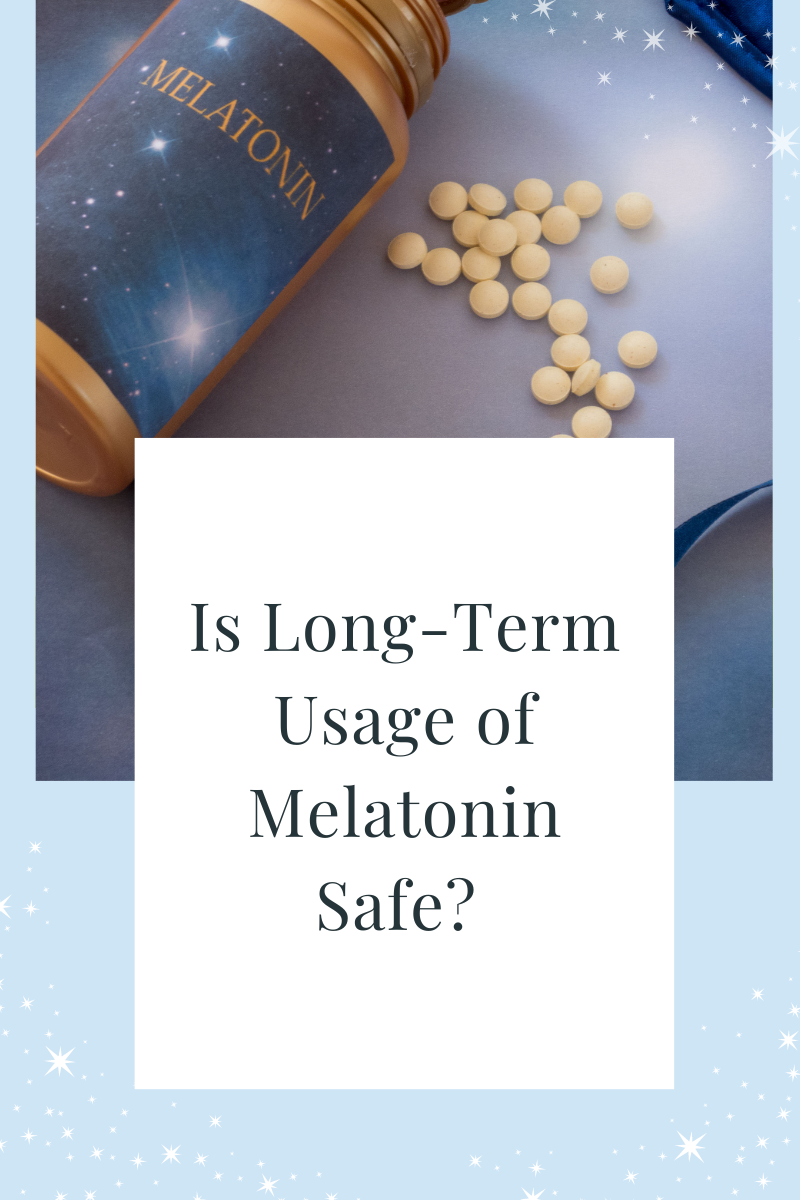A Warning about Long-Term Melatonin Use
Melatonin is a hormone produced by the pineal gland that regulates the sleep-wake cycle and plays a crucial role in maintaining circadian rhythms. The use of the man made, synthetic "sleep hormone," has gained popularity as a natural remedy for sleep disorders. Many people turn to melatonin supplements to improve their sleep quality and regulate their circadian rhythms. However, the long-term melatonin use is a topic that deserves careful consideration. In this blog post, we'll discuss the potential negative effects of prolonged melatonin supplementation on our natural production of this crucial hormone.
Before delving into the downsides, let's first understand the role melatonin plays in our bodies. As mentioned, Melatonin is a hormone produced by the pineal gland that responds to darkness, signaling to the body that it's time to sleep. Melatonin supplements are typically synthesized in a laboratory through a process involving chemical reactions, often starting with precursors such as serotonin or tryptophan, which undergo several steps to eventually produce the synthetic form of melatonin.
Short-Term Benefits and Safe Use
In the short term, melatonin supplementation can be effective in addressing chronic or acute sleep issues by regulating your circadian rhythms (though sleep habits usually need to be addressed as well), assisting with jet lag or the tossing and turning that happens the night before an anticipated day. As I am writing this, I realized that taking Melatonin the night before our homeschool co-op might be a good thing. I never sleep well on those nights. I try to make sure I have everything in order, our clothes laid out, breakfast for the road and lunch packed, my lessons and supplies ready for the classes I teach and making sure my son has organized and readied himself. Nevertheless, I don’t sleep well. So, yay for this revelation I have had while sharing with you! I think Melatonin once a week may be helpful for me. That said, I would not turn to it for daily, long term use knowing what I do now.
There are different opinions out there, but if you have struggled chronically with getting to sleep, don’t be afraid to try a bottle of melatonin. Just know that if you don’t regulate throughout the use of that bottle, other options should be considered, and the root of the problem may need to be addressed.
Negative Impact on Natural Production
Some studies and experiences from individuals have shown that the Long-term use of melatonin may lead to the suppression of the body's natural production of the hormone. The pineal gland may become less responsive to darkness disrupting the delicate balance of melatonin secretion. The circadian rhythm regulates various physiological processes including sleep, hormone production, and metabolism. Long term use of Melatonin may lead to confusion within the body's internal clock. This disruption may result in irregular sleep patterns, difficulty falling asleep naturally, and daytime fatigue.The idea of using Melatonin, because my body is struggling to get good sleep, could be further damaged by the use of melatonin long term. Sounds like quite a gamble with something as precious as our sleep.
Tolerance and Dependence
Just like with many substances, the body can build tolerance to melatonin over time. This means that individuals may find themselves needing higher and higher doses to achieve the same sleep-inducing effects. Some have theorized that this may also be attributed to the fact that the pineal gland is now making less natural melatonin.
Other Potential Health Risks
While research on the long-term effects of melatonin is ongoing, some studies suggest potential health risks associated with extended use. These include impacts on reproductive hormones, immune function, and even the potential for increased risk of certain chronic conditions.
In closing, while melatonin can be a valuable tool for addressing short-term sleep issues or even resetting the body from long term sleep issues, its long-term use requires careful consideration. In the pursuit of a good night's sleep, finding a balance between short-term relief and preserving natural sleep is key.
I myself suffered from waves of insomnia for ten years of my life. It was absolutely dreadful. My personal choice to not turn to prescription sleep medication was made through lots of prayer and personal research. I learned so much through those years. I found herbal remedies to be the most effective for me over the years. To learn more about herbs that support sleep check out his blog post.
I would be remiss if I didn’t mention that prayer has been as pivotal on my ability to sleep as supplements or remedies. There are times that despite taking or doing all the good things I find myself struggling to get to sleep, usually because of the stressors of life. I am amazed at how faithful my Lord is and embarrassed at times that I had not chosen him as the first solution.
Here is a little not special, or perfected, cause they don’t have to be, prayer for sleep for you. Feel free to download it to your phone to use on those nights when sleep is amiss or even better when it’s not, but you want to turn to HIM for your every need, specifically sleep.
Blessings and sweet rest friends. Until next time.

